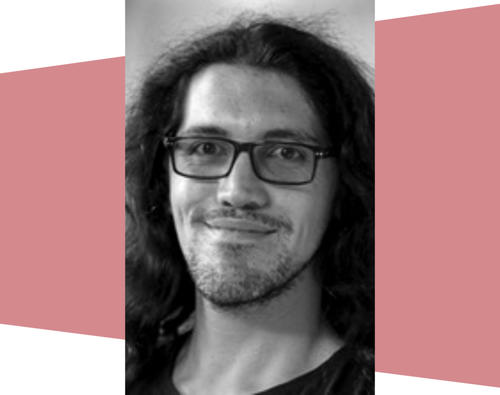Angelos Koutsourakis
Angelos Koutsourakis is Associate Professor for Film and Cultural Studies at the School of Languages, Cultures and Societies, University of Leeds, and director of the project "The Kafkaesque in World Cinema," funded by the AHRC. After his PhD at the University of Sussex, Koutsourakis was a Postdoctoral Fellow at the University of New South Wales and the University of Queensland, Australia.
His research interests include film theory, politics and representation, film philosophy, as well as film and modernism. He is the author of Politics as Form in Lars von Trier: A Post-Brechtian Reading (Bloomsbury, 2013), Rethinking Brechtian Film Theory and Cinema (2018) (Edinburgh University Press) and co-edited Cinema of Crisis: Film and Contemporary Europe (2022, with Thomas Austin). Cinepoetics acts as the host institution for his Humboldt research fellowship in Germany.
Three Quick Questions:
In a few words, can you tell us about your current research interest?
My current research project politicizes the widely used and regularly abused concept of Kafkaesque Cinema. Eschewing the conventional understanding of it as a shorthand for obscure films, it argues that Kafkaesque cinema is a critical category that can enable us to consider the interconnection between historical events/contexts, politics and aesthetics in films across the globe.
How do you relate the term poiesis to your work?
Thinking of the word in its literal sense, poiesis as both a creation but also a revelation, my own research is interested in analysing audiovisual objects whose study of their aesthetics can reveal something extra-fictional that may enable us to place them into history.
Which film or other audiovisual format has resonated with you lately and why?
The films of the mainland Chinese filmmaker Jia Zhangke are very important to me, because of their ability to engage with the aesthetics of the cinematic past (I mean post-war modernist cinema) to address contradictions of the present that relate also to the past: class inequality, labour exploitation and alienation, climate change, combined and uneven development. I am also intrigued by Christian Petzold's free adaptation of Anna Seghers' anti-fascist novel Transit (2018). In Petzold’s adaptation, Seghers’ novel has been reworked to address contemporary political contradictions which showcase how this tradition of radical European anti-fascism is not dépassé but has still much to say in the present.
